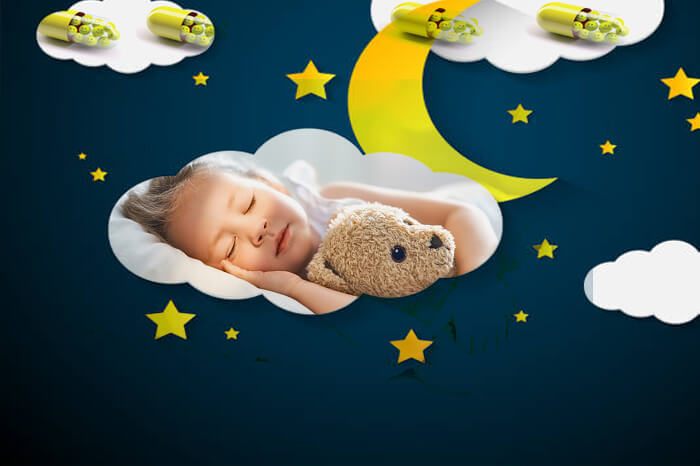It’s well known that autistic children have problems sleeping and suffer from insomnia. There are even different types of insomnia such as a difficulty in falling asleep (chronic sleep onset insomnia or CSOI) as well as waking up in the middle of the night. As a parent or carer, you won’t be surprised to hear that some children are some 40% to 80% more likely to suffer with insomnia depending on the severity of their autism.
The causes of insomnia or sleeplessness in autistic children are widely thought to be due to deficiency in the hormone melatonin; which for the last 20 years has been understood to control the regulation of our sleeping cycle. While it’s clear that autistic children tend to be deficient in melatonin, the reasons for this are no so well understood, though some studies suggest that neurochemical disorders impede the synthesis of two important enzymes that are used in the production of melatonin in the pineal gland – specifically AA-NAT (aralkylamine N-acetyltransferase) and ASMT (acetylserotonin methyltransferase, also known as HIOMT: hydroxyindole O-methyltransferase).
Clinical studies have been carried out to investigate whether or not taking melatonin orally can help both with the onset of sleep, as well as preventing any disruptive sleeping behaviour.
The studies have tended to be carried out in the same way. A controlled number of children are given 3 to 6 mg (typically) of melatonin, and another number of children are given a dummy medication or placebo. The studies are “blind”, in other words parents (and sometimes even doctors) don’t know which children are taking the real hormone or the placebo.
Parents are then asked to report on their children’s sleeping behaviour over a number of weeks by keeping a sleep diary.
In all the studies we’ve seen, children who took melatonin supplements tended to show significant, if not substantial improvements in sleeping behaviour compared with those taking the placebo drug.
Other studies have also reversed the melatonin and placebo treatments and subsequently the sleeping behaviour reversed, making it appear clear that melatonin can have an important and beneficial impact on sleeplessness in autistic children.
In one of the largest studies carried out on 107 autistic children aged between 2 and 18 years old, 25% of the childrens’ sleep problems disappeared completely, and some 60% of children saw some improvement. Only one child’s sleep actually worsened.
Clearly then, there’s a lot of evidence that autistic kids (and their parents) can benefit from a night time dose of melatonin, both to help with the onset of sleep, and to a lesser extent to prevent waking up during the night. It’s not only autistic children who can benefit, but children with attention deficit hyperactivity disorder (ADHD), epilepsy etc as well.
Melatonin is commonly available tablets form, as well as capsules, cream, and lozenges that dissolve under the tongue. We administer melatonin to our son by breaking a capsule and mixing it with his bedtime drink of rice milk.
Melatonin is available as a non perscription drug in most countries, however, with all treatments though, you should discuss with your doctor before making any decisions on whether or not the administration of melatonin is appropriate for your child, particularly on the correct dosage.
For some of the detail of the background research on the impact of melatonin on autistic children’s sleeping behaviour, there’s an excellent PDF paper here.
